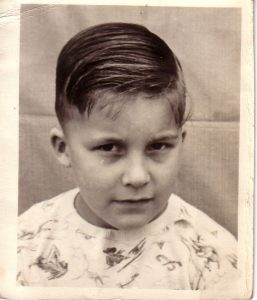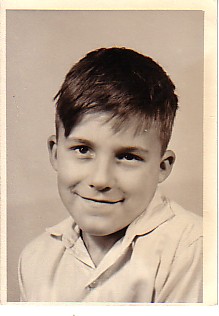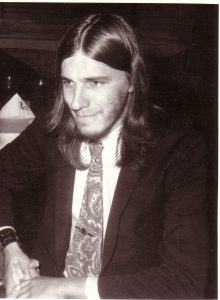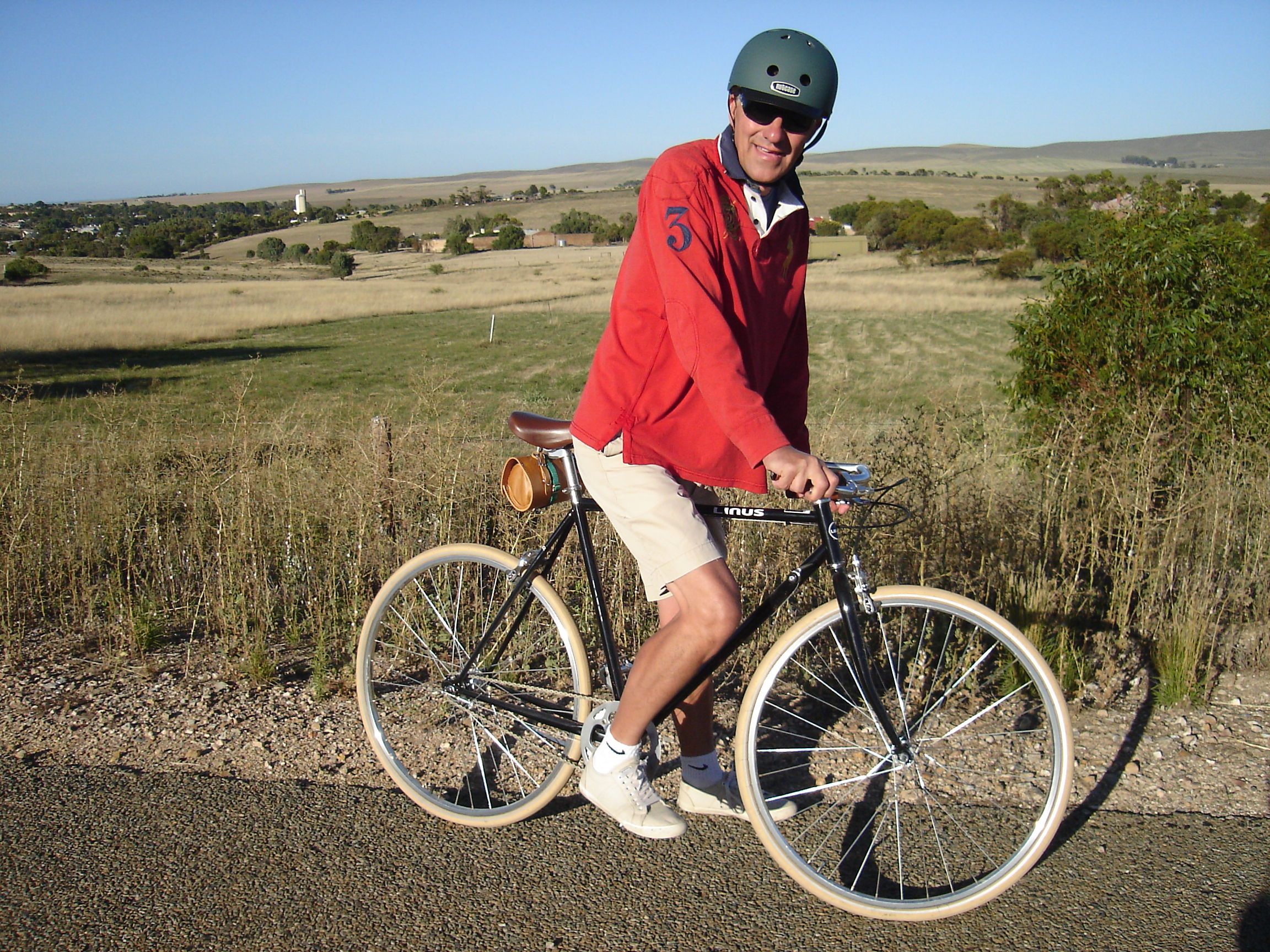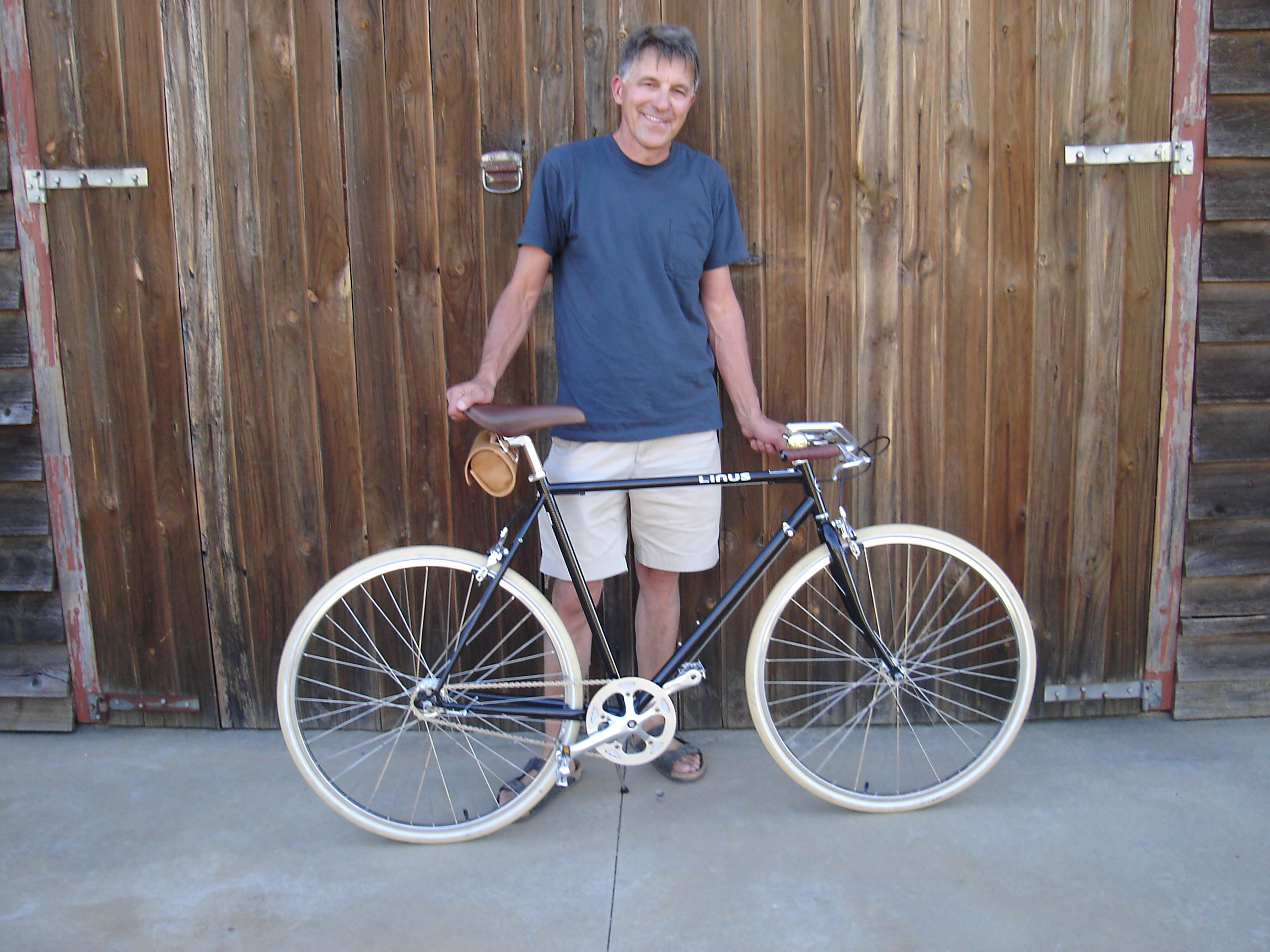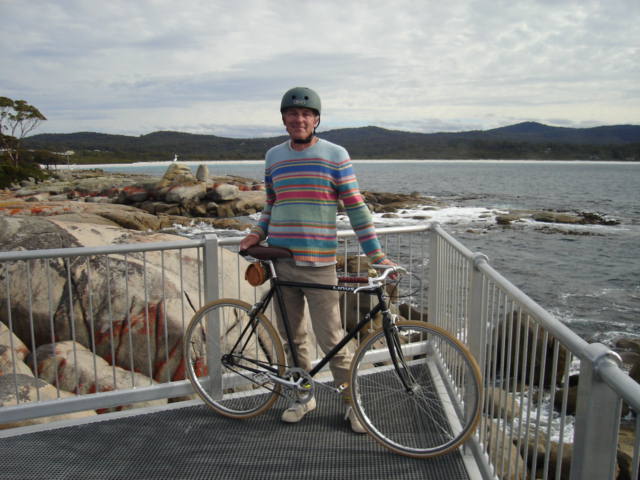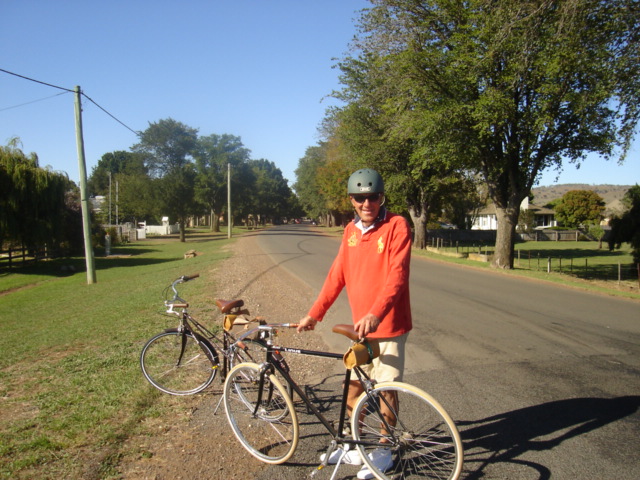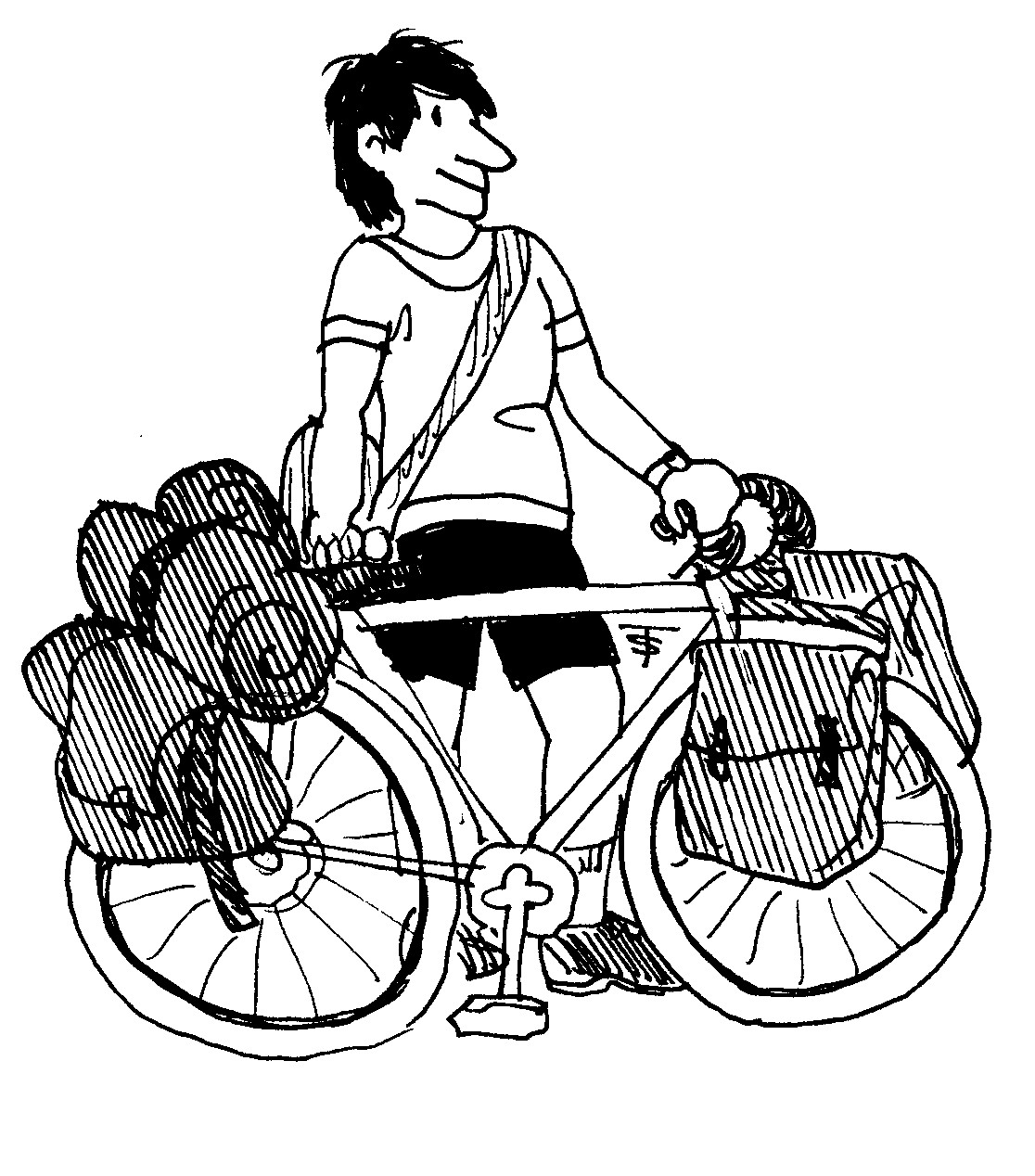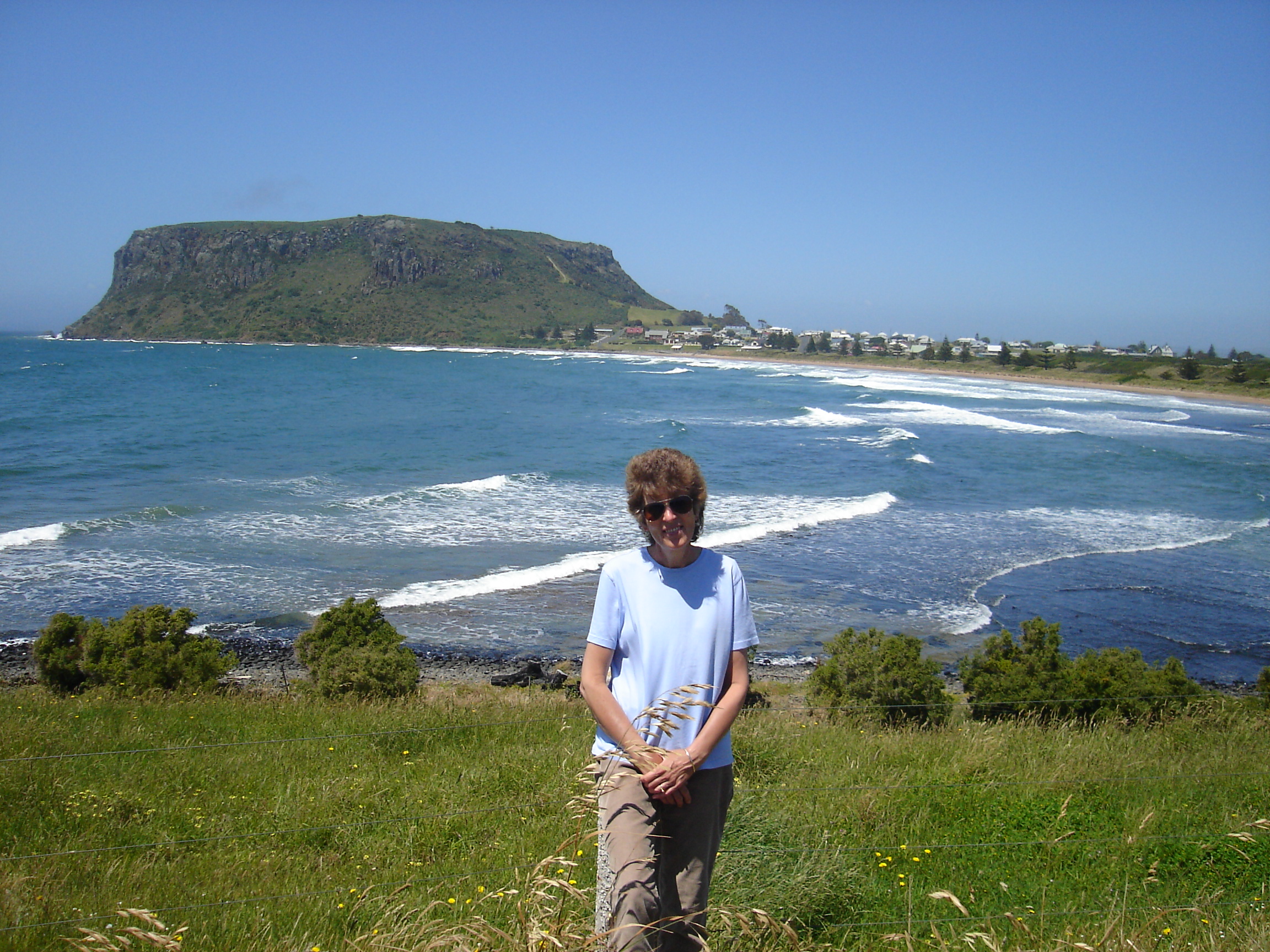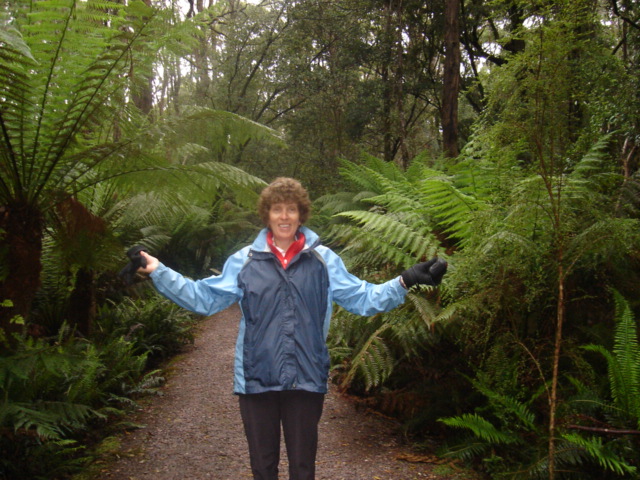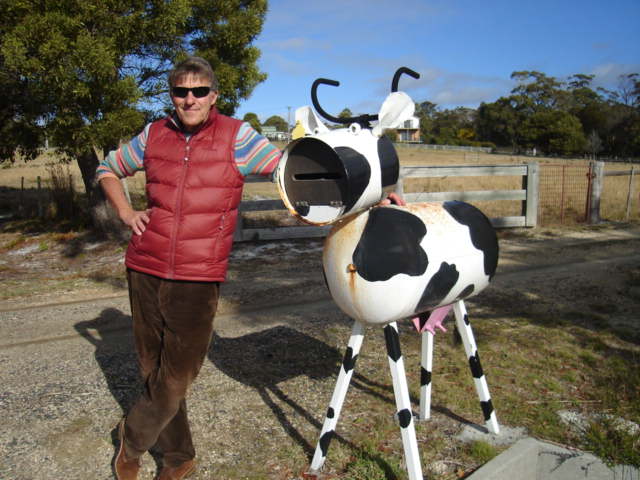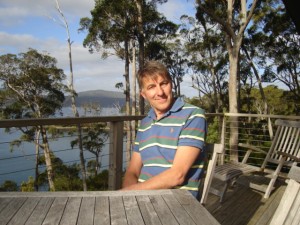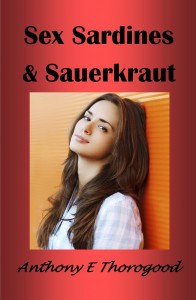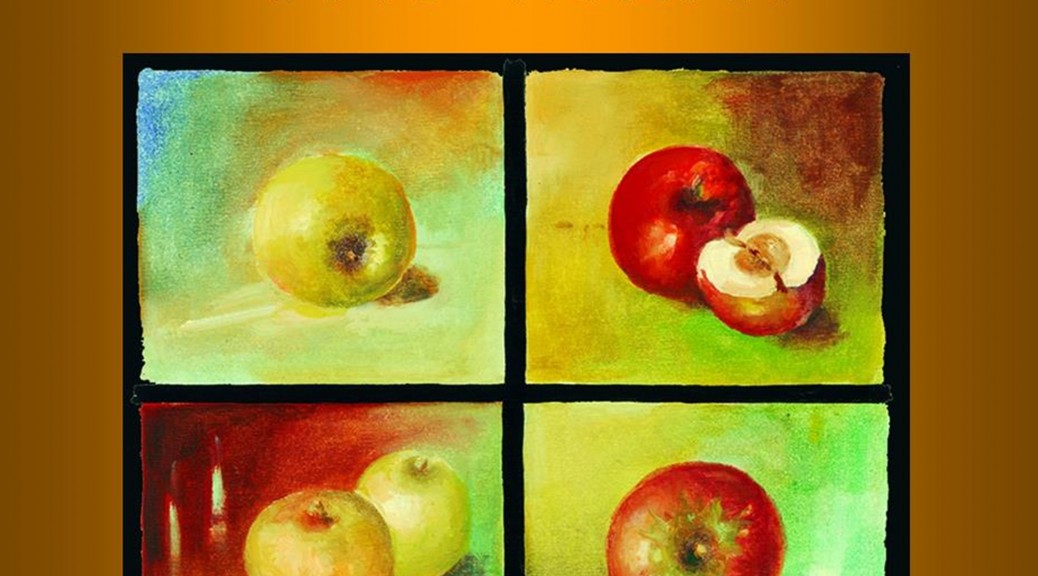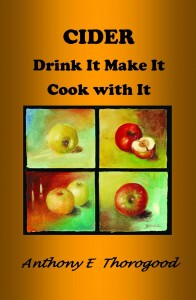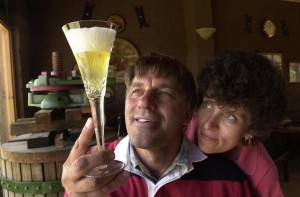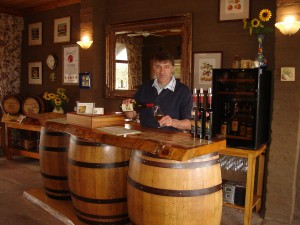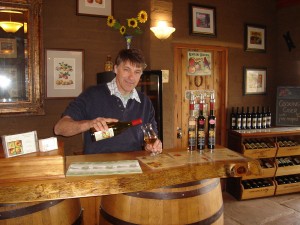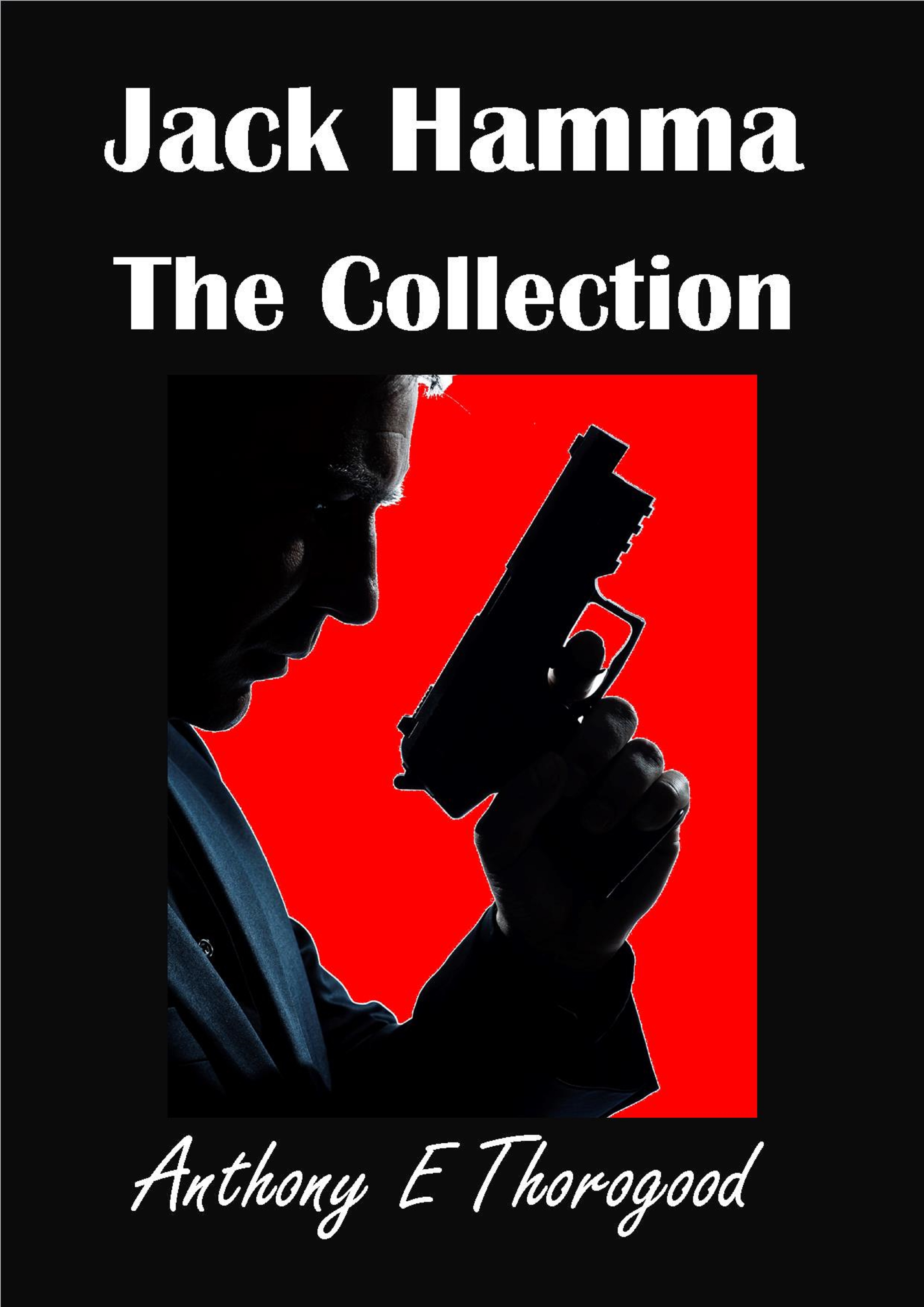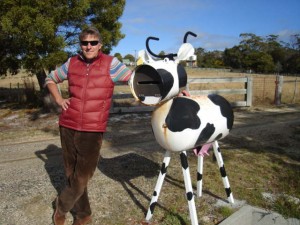
Do you want the Bad News or the Good News?
There is a myth that everyone can make a killing by writing an eBook. The myth goes that all you have to do is follow a few simple rules, get into social networking and you’re in, however this is not the case, eBooks have changed the rules of book publishing but it hasn’t increased the small percentage of the population who read books. It might, for a time, make reading more popular but this is not likely to be permanent, cheap books have always been available through libraries, second hand shops, cheap book shops and just plain borrowing from friends and family, now you can get cheap books on line as well.
The good news is that you can write the book you won’t to write, publish it for free and, if you’re lucky, make a few dollars, if you love writing that is a wonderful thing. If you are very lucky you can make a killing but first and foremost you are in control of your own destiny. Brilliant!
The Author is King:
The difference with eBooks is that the middle men (publishing companies) no longer decide who will and will not get published. The middle men no longer take a huge cut of the profits. In the old days of dead tree publishing the author was at the bottom of the ladder. He/she would humbly submit manuscripts to publishers and, on the whim of the publisher the author would or would not get published. Today the author is king but the problem now is that there are a lot of would be successful authors trying for a piece of the action. How does the new up and coming talent fight his/her way through the plethora of other talent to get noticed? Rule one is be confident that what you have written is brilliant and that the world needs to know about it, you need to be confident enough to get up and tell the world about it. So that’s the trick it is up to the author to tell the world.
Fool Proof Guides:
There are many fool proof, all singing and dancing guides out there for you, the would be author, to read and every guide tells you how easy it is if you follow the guaranteed scheme of the successful author who is about to reveal all. Buyer beware, of course they are not going to tell you all, they have worked hard to get to the position they have achieved and they are not going to give it all to you for $0.99 or even $2.99¢. It is not all bad news however, every: How to Make a Million Dollars by Publishing eBooks book has to give away some good points for you to consider. Use the information for what it is worth but don’t be sucked in. The thing to do is to red, watch and listen, evaluate everything and come up with a marketing plan that suites you, now this may take time but if you take the time the chances of you achieving your goals are greatly increased.
You are in Control of Your Destiny:
The difference today, the brilliant difference, is not that more writers will be a success but that writers are now in control of their own destiny. No longer is a writer working like a slave to pay the plethora of bills knocked up by international publishing companies. Today the author can upload his/her book and the customer can download the book electronically, the cost savings are enormous and the money saved goes to three groups: the customer, books can be very cheap now, the writer and the internet publisher who do make a killing but that is in the nature of things, they are providing a service. Writers and customers are richer and the middle man, the publisher and his crew, to a large extent, may become extinct. You are your own editor, cover designer, type setter, publicist, promoter, even at times delivery boy. What the modern writer is, or can be, is the complete artist, not just a wordsmith but a creator of a whole experience, a true Renaissance Man, what more could you want?
Hard Work:
There is a changing of the guards, so that although roughly the same number of books will be read, the money that authors can make could easily increase tenfold, but be prepared, at the end of the day you still have to work, and work hard, to make this money. At the end of the day you have to write a book that captures the imagination and is marketable.
Why Did the Chicken Cross the Road?
The modern author has been empowered by technology, it is the modern writer’s job to embrace and run with all the new opportunities and if they do this it will in fact enhance their creativity. Why did the chicken cross the road? Because he was focused and had enough tunnel vision to get up there and want to get the food or whatever it was on the other side. What a pity a prime mover came thundering by and flattened it. My advice is to cross the road but watch out for the prime movers! Getting back to the prime movers, to hell with them, to hell with caution, jump head first into the modern world of publishing and just hang on in there, enjoy the ride, take in the scenery and see where you end up.
The Cover:
First and foremost get the cover right! The cover is vital, it needs to be eye catching and look professional a good cover will sell your book before the prospective customer has read anything about it, but most importantly with eBooks, a good cover needs to do these things when it is reduced to the size of a postage stamp!
Layout:
Now get the font size and the layout right! If you want to sell your eBook it has to look good and look professional from the first page and the first thing the prospective buyer sees when having a look at your book are the fonts and the layout. The would be customer clicks onto your book to have a quick squizy and a short sample is down loaded onto their screen and if it doesn’t look good well what do you think will happen?
Tittle Page:
After the cover and fonts comes the first page which should include the title of your book and your name, perhaps a reference to copyright and that is all that the customer should see no other publishing paraphernalia is needed.
Contents:
After the title and your name the following page should be the contents, the contents should have hyperlinks so that the reader can skip in and out of your book at their leisure as any reader can do with a paperbacks.
Chapter One:
So now chapter one hits the reader, you the writer must make it very spunky. Get into the story straight away, draw your reader in with no explanation of when, where or why that can come later. Later the reader will be thirsting for when, where, why but start the story with the now. Make the reader think that they are there with you and that you are exploring a strange new world together. Paragraph one is the clincher, you must tantalise your readers’ taste buds and make them want to sample more, make them hungry for your book. Seduce, tantalise and enrich your customer, if you do this your job is done.
Practice Practice Practice:
Practice, practice, practice and then practice some more. Write well then practice until you write better, then practice some more. Don’t just scribble a few words onto your computer and think that you are a great writer. These days I believe that I am a good writer but it took me many years of practice to get there. Good writing doesn’t happen overnight. Practice, practice, practice and then start again.
Style:
To sell a million copies you need to write well and to do that you need to understand exactly what you are doing when you write, you need to look into your soul and find out who you are and what you are capable of, when you have done this you can then begin to strut your stuff. There is only one way to look deeply within for a writer and that is to write, print it out and then give it to someone to read who will tear strips off it. To be a writer first you must experience the pain. The pain is good it teaches, soul searching follows and from the soul searching comes resolve and more importantly, but slowly, comes style. You need to create your own style from your own inner being. This all sounds a bit religious but the truth is that to write well you have to undergo something akin to a religious experience. Remember understanding your mistakes will build the writer you become. Listened to every complaint, take critical reviews seriously and if you do that you can develop.
Listen:
The critic can make you into a great writer if you know how to listen to and evaluate what they are saying. Some people are just naturally critical but even so you must cut through the rubbish and get to the core of what they are saying, they may have something important to teach you. Think of it this way: everybody has something valuable to give, it is up to you the writer to find out what that person has to give you. In the end remember you can’t please everybody but you do need to please your target market. To do this you need to know yourself and to understand your inner being and you need to present the person you have discovered on page one and every other page of your book. All this is very intense and personal but that is how I work, and I believe that is what makes a good book.
Edit Edit Edit:
So you have written a novel and you think that you are the bee’s knees, a brilliant novelist, one of the beautiful people! That is so much rubbish, pull your head in and get an editor. The most important person in the world for a writer is a good editor! Where does a good editor come from? You can hire one, you can form a group of friends into an editorial collective, give them food and drink and a manuscript, or you can marry one. I took the latter option. Whatever you do in your writing career you need to remember a good writer must have a good editor.
Lazonby:
Whilst living in England I wrote ‘Lazonby Trips the Light Fantastic’ as a comic spoof on romance novels, my agent in London liked it, I didn’t. I rewrote it as a spoof on gothic novels and this took me a long, long time, real writing can be a very slow process, thankfully at times it can also be a sprint. As I said Lazonby Trips the Light Fantastic turned into a gothic horror romance spoof and I gave it to Sue, my wife, to read. When Sue had finished reading she said: the best thing to do with Lazonby was to bin it! I didn’t bin it, I cut, rewrote and cut. The heroine underwent major surgery and became a hero and I gave it back to Sue to read, her comment was: better but… So I cut, rewrote and cut again and invented three Australian girls on a train travelling north from London and gave the book back to Sue to read. She said that she admired my stamina and that the new version had some good bits, especially the three Australian girls, so I cut, rewrote and cut again.
Suddenly Sue started getting into the book. I cut most of the gothic stuff, but not all, added character descriptions that became part of the structure of the book and the book started to get personal, it started to come from within. I gave it to Sue to read and her eyes started to sparkle, I had cracked it. I love Lazonby, I never did until I started editing it and with each edit I loved it more. If I don’t love a book, and the characters in it, then it doesn’t work for me and it is not going to work for anybody else. The moral of this story is that a good writer needs a good editor.
Pulp Fiction:
It is important to remember that there are only so many books sold and only so many people to read them so if you want to be a successful writer it is a jungle out there and you will have to, so to speak kill or be killed. So how do you do this? Do you have to be better at writing? No, the fact is that most of the people who succeed and make a living at writing, write pulp fiction that’s read for entertainment value. A pulp fiction writer needs to write the best pulp fiction they can but they don’t have to be the best writer in the world. To write pulp fiction well you need action, tension, simple characterisation: he’s bad she’s good, a well thought out plot that grabs the reader and leads them through the book and a good sturdy, not overblown, prose style. I have never wanted to be a pulp fiction writer so for me to succeed it is more difficult. I do not worry about plotting or how many words I need to write each day, I push my brain to do the work using inspiration as my driving force.
Pop Fiction:
If money is your main goal, and money is good, we all need to eat, start with a good cover usually a half-naked girl, star crossed lovers, that sort of thing, make it striking, make it capture the eye of the reader. Have a good title that says: hey I’m interesting, pick me up and buy me. Also, you must write in one of the pulp fiction genres, romance is top of the list but gothic horror, vampire, werewolf, zombies are pretty high, whodunits also sell well.
Real Books:
Alternately you can write a good book about things that are important to you, write with style and use the English language with great panache but you will still most probably be completely overlooked unless you get down to the nitty gritty of marketing. A real book is original. A real book has guts. A real book is sexy, a real book is spunky, a real book is with it, a real book is now, a real book is a happening thing and perhaps there are only a handful written each generation. How can you tell if you are writing a real book? A real book says to you all the things I have just said, a real book gets right inside your head and you love it, it makes you cry, it makes you feel. If your book doesn’t do this for you then it won’t do it for anybody else.
Market Market Market:
Short of being the world’s greatest writer what can you do? Firstly you must find yourself a genre and then write: A Werewolf Ate My Mother, but stop, hold it, that market is probably saturated! There is no sure fire route to success, write your book anyway, upload it on to the internet with a good title, a good cover, hire someone to do the cover for you if need be, you will need a good opening paragraph and the rest of the book needs to be pretty good too then what you have to market your book. So now is the important stuff, you have to market, market, market, sell, sell, sell. Writing is the easy bit selling is the hard stuff. Marketing is where if you love your product or at least yourself you get up and sing your praises to the world.
What the Gurus Say:
All the following authors have one thing in common, they all work hard to sell their books and because of that they succeed.
John Locke: How I sold a million eBooks:
His main point is very interesting and that is not to try and please everybody, write your book for a niche market and keep your niche market happy and then they will buy your book, an eminently sensible idea. John believes in building a following of dedicated fans and when he publishes a new book he gets in touch with his followers but an important point he makes is not to use people but treat them well. He says that he spends about an hour a day responding to his fan base and that is the draw-back of social media, when you should be writing your next book you have to play about on twitter. Oh yes, one excellent point by John is to be original, that will put you to the forefront of your niche market. John Locke puts much store in his blogs and he even gives a few examples, I am going to be quite frank here, I found John’s blogs trite, sentimental and insincere, like something written for readers digest, but hey I tried to write for readers digest once and utterly failed, however my views are not important, what is significant is that John Locke’s blogs work for him and if you want to sell books you have to do promotions that work for you.
Michael Alvear: Make a killing on Kindle:
Michael also has a very interesting main point and that is to use the Amazon kindle system for all it is worth and then you don’t need to blog, twitter and be on Facebook and he states that blogs twitter and Facebook are actually next to useless. He writes that you must play the system to the full, don’t just scribble down your key words but work on them, they are the most important tool for a new writer, as is the presentation of the book and the blurb that you write about it, use every word you can, that is how to win over the prospective buyer. Reviews are important he says, 10 to 20 are very good but 5 or so are very important to have, get people to buy your book and review it is his advice. Some interesting sections in his book are: coming up with a must click title, designing a book cover that ignites, how to get to the top of Amazons search engines, how to pick the right category for your book, how to write oceanfront book descriptions, how to use Amazon’s ‘Look Inside’ to clinch the deal and how to get reviews that make people buy your book.
James Scott Bell: Self Publishing Attack:
Another very practical book, James categorically states that you shouldn’t be scared to be part of the new self- publishing era. He writes that what you need to succeed is entrepreneurial spirit, self-discipline and talent. He comes up with five laws, think like a publisher, write the best books you can, create a quality book, develop and put into practice a marketing plan and the fifth law is that you must repeat the first four laws over and over again. One good point James makes is; Before you write it pitch it, what he describes as an elevator pitch which is a short summation of the overall plot that you pitch to a movie maker who you meet in an elevator, (I very rarely meet movie makers in elevators) when you can do this you can write you’re book.
Zoe Winters: Smart Self-Publishing:
A very sensible book that will put the absolute beginner on the road to publishing their own book. Lots of information lots of how to do it. The book is a good summing up of just about everything you need to know to be a modern independent publisher/author.
Toby Neal: Building an Author Platform:
This essay is a short, sharp and sweet whirlwind of internet blogging, Facebook and Twitter advice and if that is the way you want to go, why not? One point he makes is to always give your customers value for money, always give them a little bit more. His philosophy is: Before you ask anything of anyone do something for them first. He says: start a blog, develop email lists, expand your twitter following to 2,000 then on to 5,000 and launch your book with all the fanfare you can muster.
J.A. Konrath: A Newbies Guide to Publishing:
An author who started off as a traditional dead tree publisher and has now moved into eBooks in a big way. In one blog I read he discusses the bad old days of book signings, public speaking, interviews etc and says that now with eBooks all that old style marketing has been swept under the carpet. The book is big, full of stuff and I can only begin to sum it up here as I haven’t finished reading it yet but if you are looking for a good long read on being a writer, by a successful writer, this is the book for you. Lots of good information, lots of tips. Konrath has his own style of writing and a strong personality and my advice is do not copy his style, if you do you will end up as a minor star in the glare of his mega sun. To me writers need to find their own style, to find their own voice, having said that this book is a great long read. Here is a quote from the book to keep in mind: There is a word for writers who never give up…published. And there is a word for a published writer who never gives up…successful.
Scott Nicholson Write Good or Die:
This is a good book to have a look at as it is a collection of articles by many writers and some of the articles are very good managing to say a lot in a few words. Here is a list of the articles I found interesting:
Nurture Your Inner Hack:
Tells you to write from the person within you, freely and fluently.
Discipline:
States that sports champions are disciplined and as a writer if you want to win you must be disciplined too. The author has four rules: One: define your goals. Two: list the problems to writing that you personally throw up then you can do something about them. Three: change your thought patterns, make writing your priority. Four: find what you love about writing and celebrate it.
Write the Novel You Want To Read:
This covers writing a book that excites you, because if it doesn’t excite you how the hell do you expect others to get excited by it. Don’t write for a demographic, publisher, reviewer or agents write for yourself. I found this piece of advice particularly good. The author says that readers respond to authenticity, originality and excitement, so be exciting original and tell it from the heart.
Persistence:
This was really interesting as the author talks about the word No. When you are rejected, instead of seeing it as a bad thing, see it as part of the journey to a Yes. A good philosophy in life.
What’s Your Premise?
Another good article that I found helpful, the author writes that you need an elevator pitch and suddenly I got it, I understood what was meant and I think that I can now write one, brilliant. The author says that you need to include in the pitch a protagonist, an antagonist, a conflict, stakes, setting, atmosphere and genre, so go for it.
Write What You Are Passionate About:
In this essay the author states: Never let agents tell you what to write. The rules are One: write what you love. Two: sell it when you have written it. Three: never let anyone tell you what to write. Four: (I think this is my rule rather than the authors): Trust yourself.
So what is true is to succeed you must find a system that suites your personality and exploit it to the full. Some people swear by social media other people do well by using the kindle and Amazon system for everything that it is worth. Me, I am slowly working towards a system of my own, I don’t know what that system is yet but I will know when I get there. All the above authors have good ideas, my advice is keep slogging away, be very creative and look for new and innovative ideas.
The Facts about Marketing:
The truth about marketing is that there are many different and varied ways to go about it and any one of a plethora of totally different approaches can give you an excellent result. No one method will work for you, if you read all the advice and try to put someone else’s system into operation you have a good chance of failing. Marketing needs to come from within, you must find the marketing system that works for you. If you hate blogging and Facebook and Twitter it is highly likely that you will fail at it, if you love social media on the other hand you have a good chance of success along those lines. But as one author pointed out there are other strategies other than social media such as making the most of the Amazon kindle system.
My advice is to do everything you are comfortable with but spend no money or very little money. Do not succumb to advertising agencies who tell you what they can do for you for $50, $500 or $5,000 you will get excellent exposure. I know from hard experience in our cider business that what is called advertising is an utter waste of money, unless it is very, very focused, and what is called journalism or editorial will work much better than any paid advert, so keep your purse strings tight.
More Books:
So how do you sell your book? As Hamlet said: ‘That is the question.’ I wish I knew the answer but there are strategies and you must have a strategy, so sit down and write a ten point plan, put it into place and revise it every week. A really good point that many of the gurus make is not to have just one eBook but two, three or more because if people buy your book, read it and like it, they want to read more.
The trick seems to be if you have established a fan base and you contact your fans and let them know that your book is out there they are more than likely to buy your book and if they do this the book is propelled through the ratings and pops up in the top 100 in its category or better still in the top ten and then it becomes very visible and, ipso facto, people start buying it. It is visible, it is popular, people buy, that’s the trick! So you work hard at your fan base or you buy a lot of books yourself, the latter is not really practical.
Goals:
What are your goals? For many their goal is to make a lot of money, for some it is recognition. A lot of authors, whose books on writing I have read, say that their goal is to make money but when you read their books about writing it is obvious that they are a fairly paranoid bunch and that their real goal is to get people to love them and this they achieve through Facebook, Twitter, emails, blogs, reviews and sales. These people make great salespeople in this new internet age, they can muster the time and energy to spend their life at the end of the World Wide Web sitting at a computer for most of the day and night. That sort of life does not appeal to me however, I think a writer has to live and experience life.
My goals are simple, I want to make a little money, I want to achieve a little recognition, I’d like a few people to really appreciate what I write. In my writing I want to be new, different, original and really try to say something about life on this planet, I don’t want what I say to be some cliché inspired by genre fiction but from within my own heart. I want to achieve a unique style which is appreciated, I don’t want to make it easy for people to say ‘Oh he writes like so and so,’ to me that is failure. A lot of writers like to write like some other writer, it makes selling your book easy, the publishing companies look for this and the public, but I’m sorry, I just call it the sheep syndrome and I am not a sheep.
What you must do is decide what you want from your writing, what you want to achieve but it is very, very important that you do not set your goals too high. If you set your goals too high it is like having no goals at all. Set attainable goals and then you will feel good when you reach them.
Freebees:
When you are a new writer and have just uploaded your first eBook you think: ‘I’m not giving away my hard work for free, if people think they can have my book for nothing they can think again!’ However one of the main things successful writers point out is that to give the customer more, not less, and for a completely unknown novice the best way to get your name out there and to get a fan base is to give your work away for free. You may think that you are a great writer and that your book will sell itself, it won’t. Give your prospective customer something for free and they will love you and buy your other books and even promote you to their friends.
Giving your book away is free advertising but, if you are giving away a book, my advice is to wait until you have at least two other books available for people to buy. You do want to make some money don’t you? Sue, my wife, and I were talking about selling and she said: ‘If people think that they are getting something for nothing they don’t mind that they have had to pay for it!’ Something to keep in mind when you market your book.
Ten or is it Eleven Point Plan:
1: Write a good book, with spunky prose, get the reader into the story.
2: Get a good editor and listen to and evaluate what they say and then rewrite.
3: Work on your social media profile Facebook, twitter, web site, blogs and the rest but do not be pushy.
4: Get a good cover which is eye catching such as my cover for Death In The Australian Outback, if you can’t do it yourself pay someone to do it for you.
5: Don’t have much front matter in your book, start with a cover, then a title page then get right into the story so that people can down load a taste and be seduced.
6: Announce your book’s publication on your social networking sites.
7: Use the particular internet publishers system for everything that it is worth, write good blurbs about your book that get people interested. Write a good blurb about yourself. Pick your key words and your categories carefully, change these if need be experiment, adapt, revisit.
8: Don’t overprice your book.
9: Encourage readers to review your book, this is important.
10: Write another book, if someone likes your book they will want to read another, repeat customers are the best.
11: Sorry, this is only a ten point plan but here is an eleventh point just for the hell of it. When all else fails read and reread these jottings and the ones I have described above and any other books on the subject that you can get hold of. You should find the answer to your questions hidden inside these tombs somewhere. Persist and you will win through.
12: Whoops I have already gone over my allocated number of points but one thing I seem to have missed – get a great tittle that helps sell your book.
Reviews:
Reviews are funny things, people who like your books almost never review them but people who don’t like your book can’t wait to put the boot in! It is worse than that however, they seem hell bent on giving you the worst rating they can and here is the crunch, frequently they haven’t even read the book.
So what’s to be done? Well you need to treat your internet publishers site as your own little bookshop, you need to manage it, dust it off, make changes and most of all get impartial people to write reviews. Make sure that your book covers are working. Update your blurbs so that the prospective reader knows exactly what your book is about. One trick is to only market your book to those people who actually want to read what you are writing. If all these things are done properly then you will tend not to get bad reviews but it is not guaranteed. The most important thing of all is don’t market your book to people who don’t really won’t to read! If you market your product to the wrong people then you are going to get bad reviews. At the end of the day however you have to learn how to handle bad reviews and not to take them too seriously
Who the Hell are You?
Put your best foot forward and build your character through what you write, what you wear, what you say, what you eat and what you write about yourself. When you have built your character market that character.
Do not write blurbs like: I am 37, I went to Dolittle University where I studied creative writing. I won second prize in a short story competition and a publisher showed interest in a novel I wrote but he lost interest. I live in Normalville and am married with two children. I like cooking and walking the dog.
This is better: I have spent 37 years achieving nothing. I studied creative writing at Dolittle University, what a waste of time that was. Up till now I have been an utter flop, a second prize in a short story completion, only two people went in for it, and I sent my novel to a publishing company and they said: ‘Don’t call us we’ll call you.’ I live in a boring suburb in a boring town. I spend my days looking after a man and two kids and dreaming about what could have been. I cook their food, I walk their dog. I need to break free! I need to break out and I have formed an escape committee, join me and let’s throw off the shackles together.
All the information in the last blurb is the same as in the first one, I don’t say it will work but it is a hell of a lot more fun to read. What your writing needs is passion and when you write about yourself you need passion. People don’t want to read a book by a boring old fart.
When you write about yourself add things like: I have only got one leg. I wasn’t house trained until I was fifteen. I nearly died once from eating peanut butter and mushroom sandwiches, that was a laugh. I walk the dogs twice a day, there are six of them and it’s my job to look after the cats there are twelve of them and I hate pets. I write whenever I can but I only type with one finger as I got frost bite once and all the rest fell off. I only eat green apples and red capsicums as I got sick years ago and have never been able to taste food since so I eat by colour. My hair fell out when I was five from sucking something I found in the bathroom and it has never regrown and, oh yes, I was born on Mars.
What I am trying to say here is, add the juicy stuff to your story, it is the juicy stuff that makes you fascinating. Look at me for instance, I sang in a university choir for five years but I couldn’t sing a note. I was bottom of the school at high school and I couldn’t read or write, then I taught myself to read and write and came top of the school. I went to England and toured around on a bicycle and got run down three times. I’ll stop here as this isn’t about me, I’m just trying to get the idea across that you are more interesting than you think. So go for it, be fascinating.
Facebook&Twitter&Gobbledygook:
Every man and his dog nowadays advises the woud be author to get into Facebook and Twitter and get a platform! Initially I wasn’t bothered but I decided to give it a go and I can tell you now that Facebook and Twitter are not the hen that laid the golden egg.
Twitter:
Twitter is full of young, and not so young, women who like to write the word fuck and young, and not so young, men who like to write about their penis’s. There are teenagers, mostly girls, who like to write about getting drunk on Friday nights, there is a whole army of merchandisers with something to sell and there are heaps and heaps of would be authors who have written the best book ever and give you a link to it, there are also slightly more sophisticated would be authors who are busy telling you how to write a book and finally there is the mass of twitter membership they are, I apologise to them for saying this but it is the truth, neurotic, they are looking for a way to connect with other people in this emotionally fractured world. You can make twitter work for you but first you have to be a bit neurotic yourself and then you must spend a lot of bits of hours scribbling tweets on your mobile phone. I think with twitter, if you want it to work for you, you must enjoy it, you must find time to tweet and your tweets must be interactions with other people not sales jargon.
The Twitter Effect:
I found a book on Twitter called The Twitter Effect, the book was short and sweet, that’s how I like them and gives some very good general advice like: Your tweets define you so tweet carefully. What’s the good of a thousand followers if not a single one is listening to you.
Do not post tweets full of links. If someone tweets you something good retweet it. If someone talks to you reply. Don’t try to sell yourself too quickly, interact with people and if they like you they will check you out. Write great tweets that others will retweet. Conversation is key.
Facebook:
The way to make Facebook work for you is to set up a good interesting site with good graphics and slowly add to it. I think of it as an alternative web page where people can log on and look at and read about you. Don’t sink your life into Facebook after all it is just a superannuated photograph album.
Finally:
I have thought about this a lot and I believe that what you need most to be a good writer is to be yourself. You need to believe in yourself and to work hard both at writing and at marketing. You need a sort of restless need to communicate and to do everything very well. You also need a story, a story that is about you, make it an interesting story and tell that story to your prospective customers make them want to be your friends.
Good Luck
Anthony E Thorogood
Author Extraordinaire
